Legacy Of Racism Touches Election, Everyday Life In US South
On one side, a General Robert E Lee look-alike waves a large Confederate flag, facing off against counter-protesters on the other bearing placards that say "Racism kills" and "KKK Go Away."
As the United States heads into an election after a summer of protests over racial injustice, a reminder of the era when slavery tore the nation apart can be seen playing out on the streets of the picturesque city of Charleston every week.
America's reckoning with racism and discrimination has impacted the turbulent presidential campaign, as a galvanized Black Lives Matter movement heaped pressure on politicians to address the country's inequities.
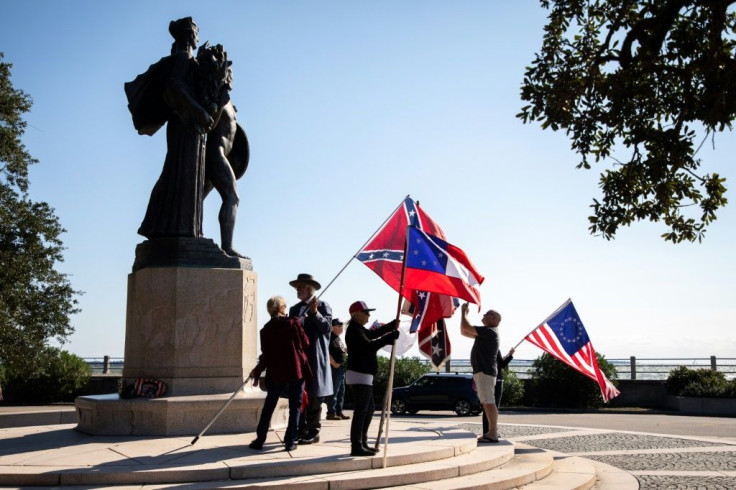
But President Donald Trump has resisted explicitly condemning white nationalist groups, and Democrats accuse him of using dog-whistle tactics, like warning white women that Democratic nominee Joe Biden seeks to "destroy your suburbs" with low-income housing and immigrants.
The scenes in Charleston, South Carolina offer a wake-up call about the tensions that remain.
Each weekend for the past five years, Braxton Spivey has unfurled his Confederate flag at the Confederate Defenders of Charleston monument overlooking the wide harbor.
"I'm here to preserve history," the white-bearded Spivey told AFP as he held the red pennant with white stars set in a diagonal blue cross.
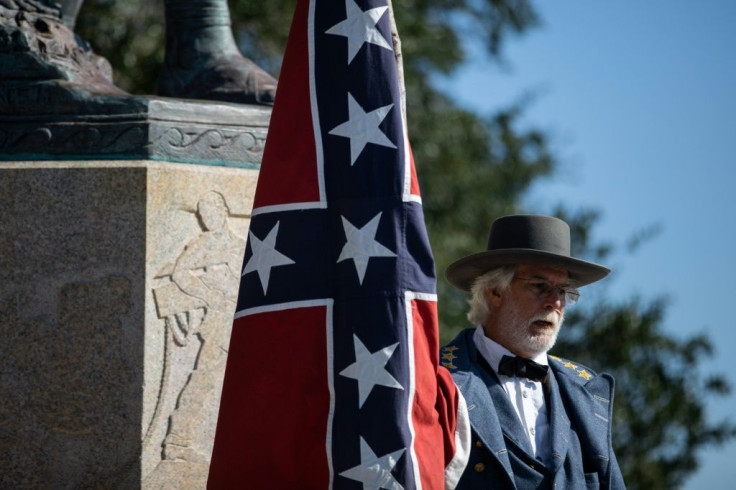
"Learn from it. If we erase history it will repeat itself."
In May, African American George Floyd was killed under the knee of a white police officer in Minneapolis.
Since then more than 100 monuments and other symbols of the Confederacy -- the pro-slavery southern states that seceded from the union in 1861 -- have been removed from public spaces as part of the national reckoning.
Spivey insisted he was no racist, but that men with evil intentions "disgraced" his cause honoring southern Civil War soldiers by hijacking the Confederate flag for their white supremacy messaging.
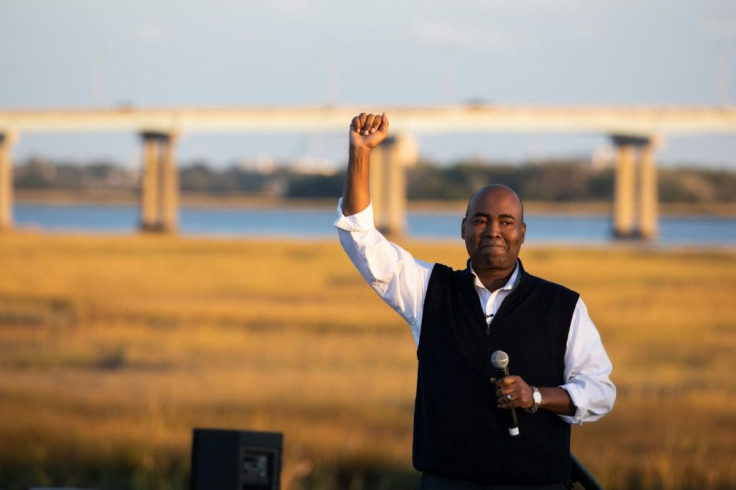
Across the street, retiree and counter-protester Rita Kazirskis wasn't buying it.
"They stand in front of this statue, with this fairy tale that it's a noble cause, when the truth is it's a bunch of racists celebrating racist history, and that's why we're here," the 53-year-old said.
Police monitored the protests from nearby, while people who drove past honked horns or extended their middle fingers.
"Make America great again," intoned one man, reciting Trump's slogan, as he passed the Confederate flags.
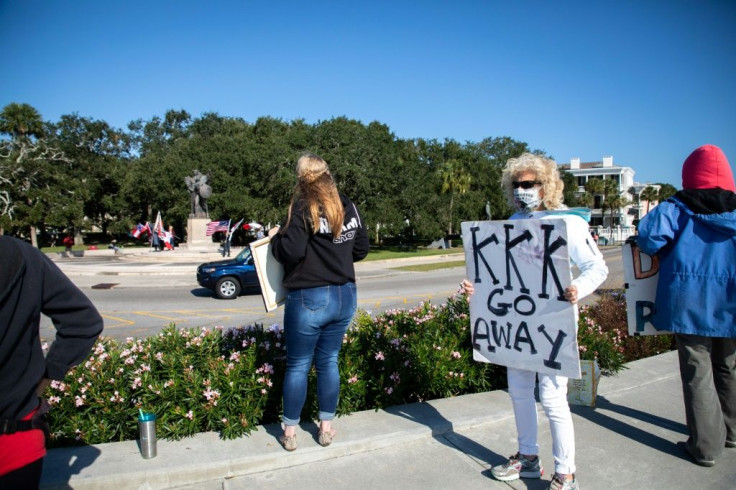
South Carolina, where the Civil War began, is confronting its racist past, but also an ongoing white nationalism whose effects, say some residents, impact them on a daily basis.
Five years after a white supremacist murdered nine black worshippers at a Charleston church, discrimination casts a long shadow over the state.
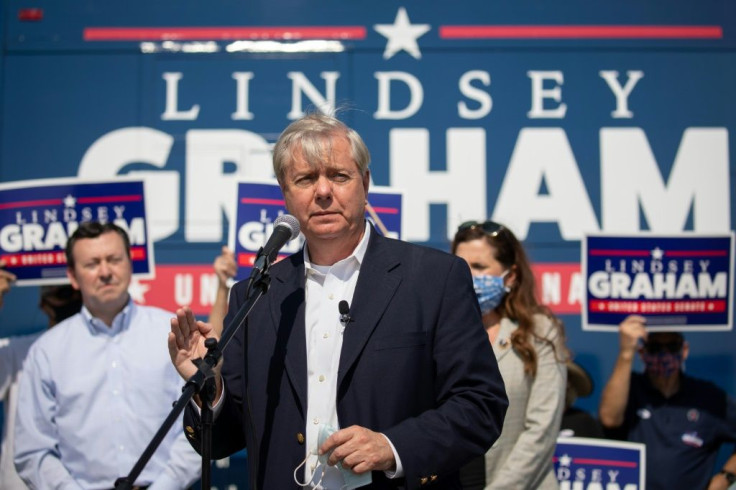
The shooting at Mother Emanuel church prompted South Carolina's Republican governor to lower the Confederate flag from the statehouse grounds.
Charleston, where about 40 percent of all enslaved Africans landed in the US, apologized in 2018 for its role in the slave trade.
In November South Carolina could elect its second African-American senator, Democrat Jaime Harrison, which would make it the first US state with two black senators serving together.
And yet, experts say voter suppression remains a serious problem, particularly in the South, and accusations of racism have proliferated in the worlds of employment, education and sports.
Artist and writer Tynishia Brown, who is black, explained that the sting of discrimination is inescapable in South Carolina, fueled by events on a national level.
"Our current president hasn't convinced me that he's not been close with white supremacy," the 26-year-old told AFP at an early voting center in North Charleston.
Racial injustice is real here, she stressed. "We see it every day."
Harrison, the Senate candidate, recognizes the challenges.
"That is the legacy, that is the historic pain that so many black folks live with to this very day," the 44-year-old told reporters Saturday. "And so I understand what that young woman is saying. It's hard."
The issue flared when Harrison's Republican rival, Senator Lindsey Graham, made a gaffe last week.
Graham, a Trump ally, sparked outrage for invoking "the good ol' days of segregation" during a hearing on Supreme Court nominee Amy Coney Barrett.
"That's just racist and shouldn't be said... even if it was a joke," said Black Lives Matter activist Marcus McDonald, 23.
"Our ancestors died for the right to do this," he said after voting early.
Several South Carolinians point to key changes that they say augur better days.
In June a statue of pre-Civil War vice president John Calhoun, a zealous defender of slavery, was removed from a Charleston park where it had stood for 133 years.
But the operation took 17 long hours in the muggy southern heat.
"Like racism, he was deeply rooted in there," local media quoted Charleston Mayor John Tecklenburg as saying.
© Copyright AFP 2024. All rights reserved.




















